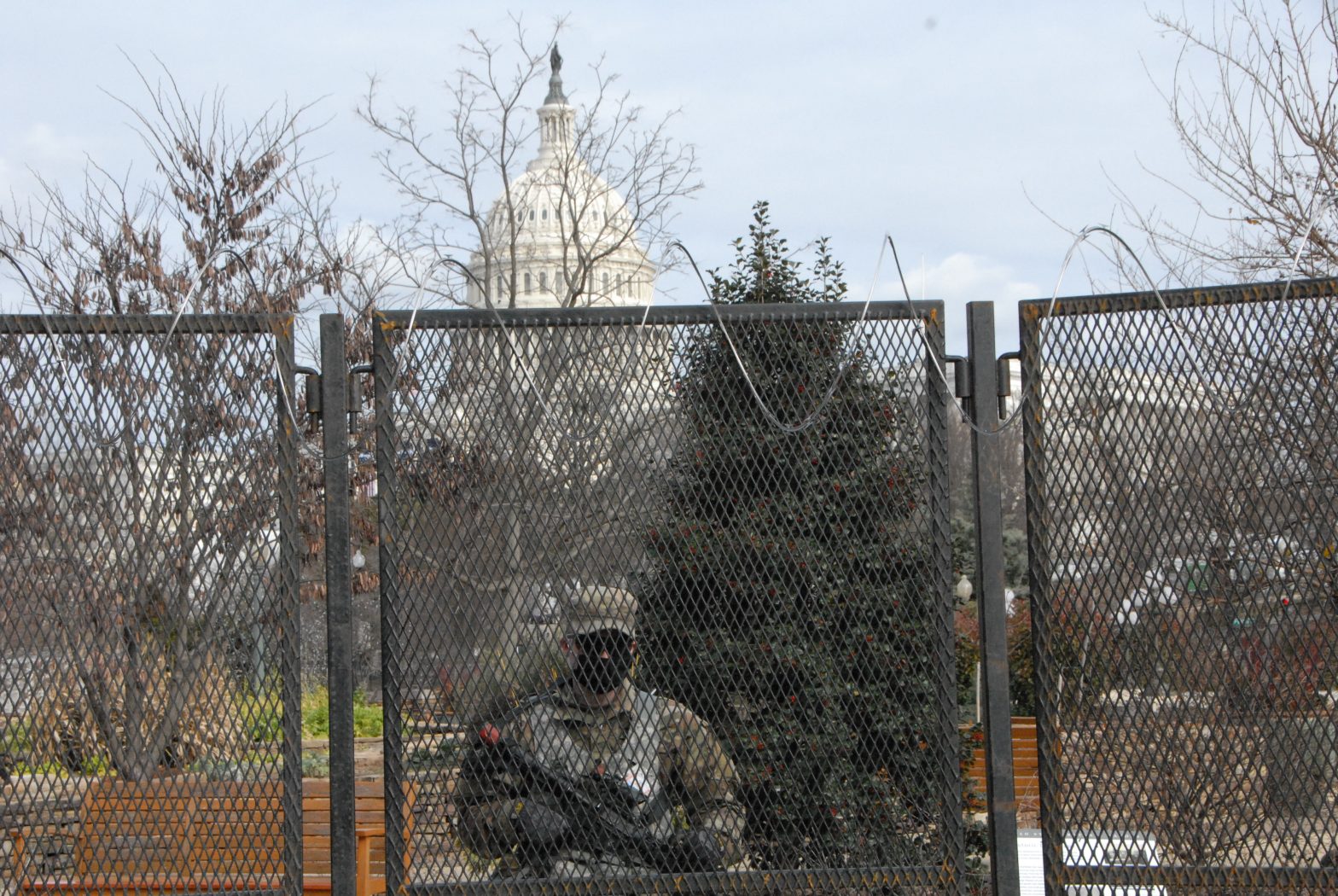Lockdown of D.C. Quiets Protesters But Prompts First Amendment Debate

WASHINGTON — Only about 200 demonstrators made good on their pledge to protest the presidential inauguration of Joe Biden on Wednesday.
This time, there was no large-scale protest of the election like the one that drew thousands to Washington on Jan. 6.
The tamer demonstrations Wednesday were restricted to a small area between the National Archives and the Canadian Embassy in downtown Washington. The peaceful protesters consisted largely of people holding signs with various slogans on them.
Any chances of a security breach were overwhelmed by 25,000 National Guardsmen with machine guns, concrete barriers and chain-link fences with razor wire on top surrounding the National Capital Mall.
A bomb threat was phoned in anonymously to the Supreme Court before the inauguration ceremony but it was quickly determined to be fake. Anywhere else during the inauguration, anyone police considered a troublemaker was excluded from the area around the Mall or arrested.
About 1,000 guests attended the ceremony, far fewer than the roughly 200,000 at previous inauguration ceremonies.
Discussion about what the National Guard and police lockdown of downtown Washington means for First Amendment free speech rights continues among local residents and visitors.
Local and federal officials tried to address the concerns during a press conference on
Friday.
Jeffrey Reinbold, superintendent of the National Mall and Memorial Parks, said at the press conference that government officials would prefer to allow First Amendment activities, which usually mean demonstrations.
“We are the premier First Amendment arena in the country, in the world, probably,” Reinbold said.
However, he added, “These are different times and require different measures.”
Matt Miller, who manages the Secret Service’s Washington field office, said the government would not allow a recurrence of the Jan. 6 mob violence.
“Our democracy is built upon the rule of law,” Miller said at the press conference.
Their opinions were largely shared by persons passing outside the temporary barriers erected around the Capitol and major monuments.
Jake Gluck, 23, a web developer from the District of Columbia, told The Well News he had “mixed feelings” about the lockdown.
He recognized the National Guard was trying to protect the community but “so many walls have gone up here in the last year, I don’t know if they’ll ever come down,” he said.
He said he didn’t believe the lockdown interfered with free speech because the protesters were “just reactionary.”
Ethan Winters, 22, a Washington, D.C. resident, was passing near the Capitol on his bike because, “I just wanted to see what’s going on.”
“It’s understandable but this amount of deployed force is excessive,” he said.
He added, “It doesn’t bother me.”
Tom Kelly, 58, a substitute school teacher from Brevard County, Fla., said, “I think it’s necessary. They want to make sure there’s a peaceful transition.”
He also did not envision a problem with First Amendment free speech rights of protesters by the heavy security.
“Obviously it stops it but I think there’s a necessity for it,” he said.
























